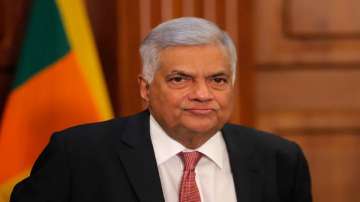Sri Lanka's new Prime Minister Ranil Wickremesinghe said on Monday that the proposed 21st amendment to the Constitution, aimed at curbing the unfettered powers of President Gotabaya Rajapaksa, was presented before the Cabinet. The prime minister said the amendment will be distributed among party leaders for their observations, following which it will be sent back to the Cabinet for final approval.
"The 21A was presented to the cabinet, the amendment will be distributed among party leaders for their observations. Following this, the amendment will be sent back to the cabinet for final approval. Anyone can go to the Supreme Court against it," Wickremesinghe said in a statement. The 21st amendment is expected to annul the 20A which gave unlimited powers to President Rajapaksa after abolishing the 19th amendment which had made Parliament powerful over the president.
The constitutional reform was a major plank of the agreement between Rajapaksa and Wickremesinghe when he took over the job of the prime minister on May 12. Rajapaksa had also pledged reforms in the Constitution in an address to the nation earlier this month. The 21st amendment would make it impossible for those with dual citizenship to hold a seat in Parliament. President Rajapaksa, who is facing growing demand for his resignation for mismanaging the country's economy, had relinquished his US citizenship in April 2019 before contesting the presidential elections.
The 21st Amendment to the Constitution has become an overwhelming demand amid an ongoing economic and political crisis in Sri Lanka. Public protests have been going and the protesters demand that the 20A be repealed as it has made the presidency all too powerful. Justice Minister Wijayadasa Rajapaksa had earlier said that the 21st amendment seeks to further strengthen the powers of the existing commissions and to make them independent as well.
In addition to the existing Independent Commissions, the National Audit Commission and the Procurement Commission will be amended as Independent Commissions under the proposed legislation. The justice minister said the new amendment also proposes for the appointment of the Governor of the Central Bank to come under the Constitutional Council. The lawyers’ body, Bar Association of Sri Lanka, has criticized the current form of 21A, claiming it was falling short of the expected level of reforms required. The BASL in a statement said the 21A needs improvements to achieve stability in the country.
The powerful Rajapaksa family tightened their grip on power after their massive victory in the general elections in August 2020, which allowed them to amend the Constitution to restore presidential powers and install close family members in key positions. In his 2019 presidential bid, Gotabaya Rajapaksa won a convincing mandate for a presidency during which he sought full presidential powers over Parliament. Sri Lanka is grappling with an unprecedented economic turmoil since its independence from Britain in 1948.
A crippling shortage of foreign reserves has led to long queues for fuel, cooking gas and other essentials while power cuts and soaring food prices heaped misery on the people. The economic crisis has also triggered a political crisis in Sri Lanka and a demand for the resignation of President Gotabaya Rajapaksa. The crisis has already forced prime minister Mahinda Rajapaksa, the elder brother of the president, to resign on May 9. An inflation rate spiraling towards 40 percent, shortages of food, fuel and medicines and rolling power blackouts have led to nationwide protests and a plunging currency, with the government short of the foreign currency reserves it needed to pay for imports.
ALSO READ | India big brother to Sri Lanka: Namal Rajapaksa thanks PM Modi for latest round of humanitarian aid
ALSO READ | Sri Lanka crisis: India supplies another 40,000 metric tonnes of diesel
Latest India News
